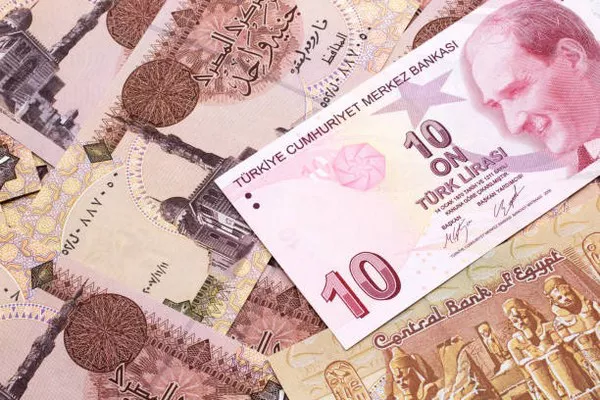The value of the British Pound (GBP) in the foreign exchange markets is influenced by a multitude of factors, ranging from economic indicators to geopolitical events. Traders, investors, and policymakers closely monitor these influences to anticipate movements in the GBP’s value. By understanding these key drivers, market participants can make more informed decisions. Let’s delve into the various factors that affect the GBP price.
1. Economic Indicators: How Do They Impact GBP?
Economic indicators play a crucial role in determining the strength or weakness of a currency like the GBP. These indicators provide insights into the health of the British economy, which directly influences investor sentiment towards the currency. One of the most impactful indicators is the Gross Domestic Product (GDP), which measures the overall economic performance. A robust GDP growth rate typically strengthens the GBP as it signals a healthy economy with potential for higher interest rates. Conversely, a sluggish GDP growth rate can lead to GBP depreciation.
Moreover, interest rates set by the Bank of England (BoE) are critical in determining GBP’s value. When the BoE raises interest rates to combat inflation, it attracts foreign capital inflows seeking higher returns on investments denominated in GBP. This increased demand for the currency pushes its value up. Conversely, lowering interest rates can weaken the GBP as it reduces the attractiveness of GBP-denominated assets. In addition to GDP and interest rates, other key economic indicators such as employment data, inflation figures (Consumer Price Index), and retail sales can all impact market perceptions of the GBP’s strength.
2. Political Stability and Uncertainty: How Does it Influence GBP?
Political stability is a significant determinant of a currency’s value, and this is especially true for the GBP. Political events and developments can create uncertainty, which can lead to volatility in currency markets. For instance, a stable government with clear policies and leadership generally fosters confidence in the GBP. Conversely, political turmoil or uncertainty—such as general elections, Brexit negotiations, or changes in government—can lead to GBP depreciation due to increased risk aversion among investors.
Brexit, in particular, has been a key driver of GBP volatility since the referendum in 2016. The uncertainty surrounding the terms of the UK’s departure from the European Union has periodically caused sharp movements in GBP exchange rates. Progress or setbacks in Brexit negotiations often result in immediate reactions in currency markets. Additionally, political events in major trading partner countries, such as the United States or the European Union, can indirectly impact the GBP. Changes in diplomatic relations or trade policies can influence market sentiment towards the UK, affecting the GBP’s value accordingly.
3. Global Trade and Market Sentiment: What’s the Connection to GBP?
The GBP’s value is intricately linked to global trade dynamics and overall market sentiment. As a major global trading currency, the GBP’s performance is influenced by international trade conditions. Strong global demand for British exports can boost the GBP, as it reflects a healthy trade balance and increased demand for the currency to finance trade transactions. Conversely, trade tensions or protectionist measures that hinder British exports can weigh on the GBP’s value.
Market sentiment, driven by broader economic trends and geopolitical events, also impacts the GBP. During periods of heightened uncertainty or risk aversion, investors often seek safe-haven currencies like the US Dollar or Japanese Yen, leading to a decline in GBP demand. Conversely, during periods of optimism and economic expansion, the GBP may strengthen as investors seek higher returns in riskier assets denominated in GBP.
4. Market Speculation and Sentiment: How Do Traders Influence GBP Price?
Market speculation and sentiment can significantly impact short-term movements in the GBP. Traders and investors closely analyze news and data releases to anticipate market reactions and adjust their positions accordingly. Sentiment indicators, such as positioning data from futures markets or surveys of market participants, can provide insights into the overall market sentiment towards the GBP.
Moreover, technical analysis—examining historical price charts and patterns—plays a role in shaping trader decisions. Breakouts, trend reversals, and key support or resistance levels identified through technical analysis can trigger buying or selling activity, influencing the GBP’s price direction. Market sentiment can sometimes diverge from fundamental factors, leading to short-term fluctuations or speculative bubbles in GBP exchange rates.
Conclusion:
In conclusion, the value of the British Pound is influenced by a complex interplay of economic, political, and market-related factors. Economic indicators like GDP growth, interest rates, and inflation shape perceptions of the British economy and impact GBP demand. Political stability and events such as Brexit negotiations can create uncertainty that affects investor sentiment towards the GBP. Global trade conditions, market sentiment, and speculative activities further contribute to the fluctuations in GBP exchange rates.
For traders, investors, and policymakers, staying abreast of these key factors is essential for making informed decisions in the foreign exchange markets. The GBP’s value is not solely determined by domestic factors but is also influenced by global trends and market dynamics. By understanding the multifaceted nature of these influences, market participants can navigate GBP price movements more effectively and mitigate risks associated with currency volatility.


